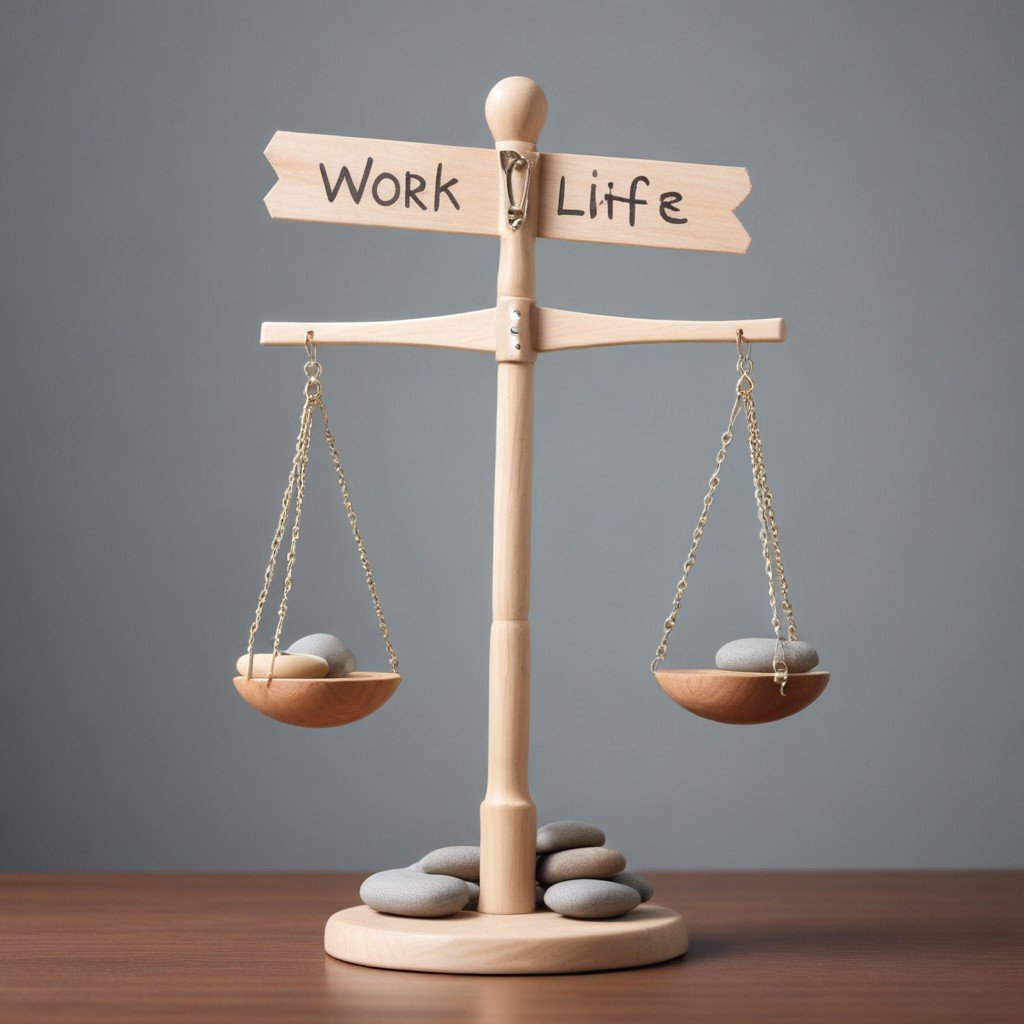Work-life balance can seem like an impossible goal in today’s busy world. Since the demands of our jobs often affect our free time, it’s simple to feel slowed down and worried. What is work-life balance, though, and why is it so important? Let’s get into this important part of living a healthy, happy life.
Achieving work-life balance means finding a good mix between the time and energy you spend on work and personal activities and relationships. It involves making a relationship work so that neither work nor personal life gets ignored. Finding this balance is significant because it affects your health, your happiness, and your job pleasure.
Mental Health Benefits
One of the best things about work-life balance is that it’s good for your mental health. When we use our time well, we feel less stressed, have better moods, and think more clearly. This balance helps keep people from getting burned out, which is a state of being emotionally, physically, and mentally worn out from too much worry for a long time.
| Benefit | Description |
| Physical Health Benefits | Balancing work and life lowers the risk of burnout, ensures better sleep, and improves overall health. Allocating time for exercise, healthy eating, and adequate rest helps maintain physical well-being. |
| Enhanced Productivity | A balanced life often leads to higher efficiency. Setting clear boundaries and prioritizing tasks makes work time more focused, resulting in better performance and less procrastination. |
| Strengthened Relationships | Work-life balance allows for quality time with family and friends, fostering stronger social connections and improving relationships. This time is essential for emotional support and creating lasting bonds. |
Long Working Hours
Long work hours hinder work-life balance. Overworking can leave little time for family, hobbies, and recreation. You must recognize when work invades personal time and take action.
Lack of Boundaries
Undefined boundaries allow work to invade our time, causing stress and dissatisfaction. Balanced living requires boundaries.
Setting Boundaries
Separating work and personal time is crucial. This may involve sticking to work hours or having a designated workplace you leave at night. Inform your family and coworkers of these boundaries to ensure they respect them.
Time Management
Using a planner or digital calendar, setting priorities, and dividing up large projects into smaller ones are all ways to manage one’s time better. Time management skills allow us to get more done in less time while still making time for leisure pursuits.
Delegating Tasks
To cut down on stress and work, it’s important to learn how to delegate chores, whether you’re at work or home. To delegate well, you need to find jobs that other people can do and trust them to do them. This will free up your time to work on more important things.
Unplugging from Technology
Work-life balance can be greatly improved by going on a digital vacation. Set times during the day when you won’t be using your phone, like before bed or during meals, to reset and reconnect. This helps make the line between work and home life very clear.
Flexible Working Hours
It’s much easier to balance work and life when you can set your hours. There is less stress and more work gets done because workers can plan their days around personal obligations. Offering open hours could help the health and happiness of your employees.
Remote Work Opportunities
You can work remotely from wherever saving time on commuting and improving work-life balance. However, limits are needed to avoid work taking over home life. Having a designated office and set work hours might help preserve this balance.
Wellness Programs
Workplace wellness programs aid work-life balance. Fitness classes, mental health resources, and stress management sessions are examples. Employers may help employees succeed professionally and emotionally by fostering well-being.
Prioritizing Self-Care
Self-care is essential for balance. Meditation, exercise, and sleep are self-care practices. Regular self-care reduces stress and boosts well-being.
Quality Personal Time
Spending quality time with loved ones is essential for emotional well-being. Plan regular breaks and activities that allow you to connect with family and friends, ensuring these moments are free from work distractions.
FAQs
- What are some quick tips to improve work-life balance?
Set clear boundaries, manage your time effectively, delegate tasks, and ensure you unplug from technology regularly.
- How can employers support work-life balance?
Employers can offer flexible working hours, remote work opportunities, and wellness programs to support their employees’ well-being.
In summary
It takes time, energy, and dedication to strike a work-life balance. Our personal and professional lives may coexist in harmony if we learn to appreciate it, identify obstacles, and put plans in place. Consciously prioritizing your well-being and happiness is more important than striving for perfection.



